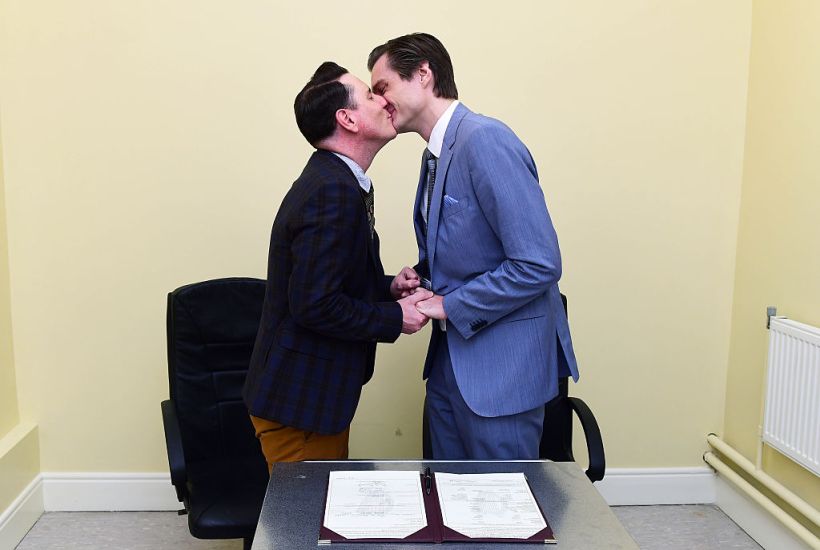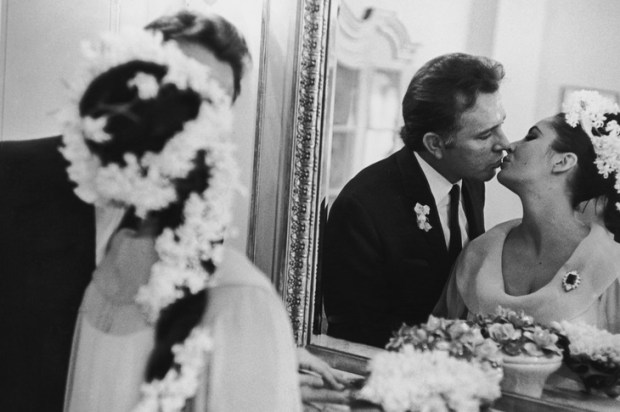Last week a Senate report was released, following the Inquiry: the Select Committee on the Exposure Draft of the Marriage Amendment (Same-Sex Marriage) Bill.
The scope of the inquiry was deliberately narrow, limiting discussion to consequences for law and society, should the Marriage Act change and include non-heterosexual marriage. The Senate Inquiry was not asking for arguments for and against same-sex marriage; indeed the committee outlined that such submissions would not be published. Unfortunately though, this important fact has been overlooked by some journalists who have painted the report as an argument for the inevitability of marriage change.
Deliberations concerning the fall-out from redefining marriage are important, and concerns are warranted given what is happening in some countries who have adopted same-sex marriage. There are real consequences relating to freedom of religion and freedom of speech, and there are genuine questions relating to the rights of children having a mum and dad, and to the issue of surrogacy and assisted reproduction. It is simply naive for us Australians to assume that nothing will change.
As important as those conversations are, there is the preceding question, the question not tackled by the Senate Inquiry and is now assumed by many as a given: what is marriage?
According to the report, the new definition will involve deleting the phrase, ’man and woman’, and substituting it with ‘two people’. Thus marriage would become in Australian law, ‘the union of two people to the exclusion of all others, voluntarily entered into for life’.
Increasingly, Australians have been led to believe that same-sex marriage is the great inevitable. The legal definition of marriage may well change in 2017, but the case for change has been less about cogent reasoning, and much to do with emotive stories and slick slogans. One should not ignore people’s personal experiences, but if we are to be fair, we will also listen to the equally powerful stories of same-sex attracted people who are asking us not to change the marriage definition. Yet, stories alone should not dictate Australian law.
Disappointingly, many people have been driven to silence, following a constant tirade of abuse from numerous politicians and media personalities. To even question the validity of same-sex marriage is paramount to a new social heresy according to some. But it is possible, indeed desirable to speak for the dignity of LGBTI persons and to seek their well-being, without making the logical misstep of calling for marriage redefinition.
The question remains, what is marriage?
What is it about the nature of marriage that requires us to remove man and woman from its definition?
Is it love?
Love is, of course, a wonderful thing, and there are many kinds of love, but is this argument sufficient? Surely, not every loving relationship should be called marriage. The reality is, there must be more to marriage than love, otherwise even the proposed redefinition is discriminatory and inadequate.
Another argument that has been put forward is the view that marriage morphed throughout history, therefore it’s okay to once again institute change. This thesis, however, is nothing more than an example of historical revisionism. The 2004 amendment to the 1961 Marriage Act did not change the nature of marriage, it simply spelt out what was already established belief and practice. And when the Marriage Act was enacted in 1961, it was not reinventing the definition of marriage, but delineating what was known to be true about marriage. Similarly, the Family Law Act 1975 which established the principle of no-fault divorce, did not alter the meaning of marriage, but wholly depended upon it.
What about the argument of equality?
The phrase ‘marriage equality’ is often cited, and it’s a clever piece of marketing, but it is also self-defeating and potentially disingenuous. First of all, all sides in the marriage debate believe in marriage equality, but equality depends on how one defines marriage. Second, if the current debate is really about honouring equality, for whom is it attaining equality? The draft definition will continue to discriminate against polygamists and polyamorists, and it will also discriminate against those who believe marriage should have fixed term rather than ‘being for life’. If proponents of ‘marriage equality’ are in fact wanting equality for all, it makes sense to ask, why do they insist marriage should remain between two persons and be intended for life?
Such questions are not difficult to answer for those holding to the traditional and historical understanding of marriage, but I am yet to hear a persuasive argument from those advocating change, and I am keen to hear one.
As far as I can see, pretty much everyone in the marriage debate discerns a level of discrimination, but the question is at what point? What is it about marriage that requires two persons and lifelong commitment?
After an interesting dialogue last year, one interlocutor wrote to me saying, “Marriage is about what people want it to be, whether it’s about love, convenience, social acceptance, children, getting a visa or whatever.”
I appreciated his honesty, and it demonstrated that when nudged, the reasoning for marriage change frequently ends in this same place of vagueness and imprecision. But arguing that the meaning of marriage is malleable is a fast track to making marriage meaningless. Conversations such as this one revealed the argument boils down to individualism, and to the belief that I am free to determine meaning as I like. As appealing as that may at first sound, it’s ultimately fallacious and counter-productive for a healthy society.
If I walked along the Monash freeway, I would soon find myself in trouble because the Monash freeway is not designed for pedestrians.
Similarly, marriage is and has always been designed for a particular type of relationship: a loving consensual relationship between a man and a woman, intended for life, for personal relationship, for procreation, and for the building of society. There is something inherently unique about this covenantal relationship that we call marriage, and which can only be fulfilled by a man and a woman. As an example, biologically, the act of procreation requires two persons: a man and a woman. And such is the intimacy of this sexual union, that it requires the kind of loving commitment that marriage provides. We all know children who grow up without a father or without a mother, but I don’t know of anyone who believes that this is a good thing. It is sometimes necessary given the awful reality of domestic violence, or the tragic death of a parent, but does anyone truly believe that the ideal context for raising children is without a mum and dad?
If our Australian Parliament is to change the Marriage Act, we need better reasoning than what have so far heard. And last year’s argument, ‘Well, the Americans have done it’, probably doesn’t hold so much weight anymore!
I trust people won’t confuse my frankness here with glibness or insensitivity, for I do not wish to cause hurt to any for whom this is a personal issue. I genuinely desire for you to have life to the full, as Jesus spoke about (John 10:10). It is also possible that there will be a few ‘religious’ people who will read my words and use them to agitate views about homosexuality that I do not share; they will not find an ally here because the God whom I know and serve has made every human being in his image and they are deserving of love and dignity. That marriage is for a man and a woman is a good thing, which even many gay and lesbian people recognise and affirm.
Is it wise to redefine marriage? Whichever way you respond to that question, we need to also answer these questions: what is marriage, and with what reason(s) do you define at such?
Murray Campbell is Lead Pastor at Mentone Baptist Church. He Tweets at @MurrayJCampbell
Got something to add? Join the discussion and comment below.
Got something to add? Join the discussion and comment below.
Get 10 issues for just $10
Subscribe to The Spectator Australia today for the next 10 magazine issues, plus full online access, for just $10.


























Comments
Don't miss out
Join the conversation with other Spectator Australia readers. Subscribe to leave a comment.
SUBSCRIBEAlready a subscriber? Log in